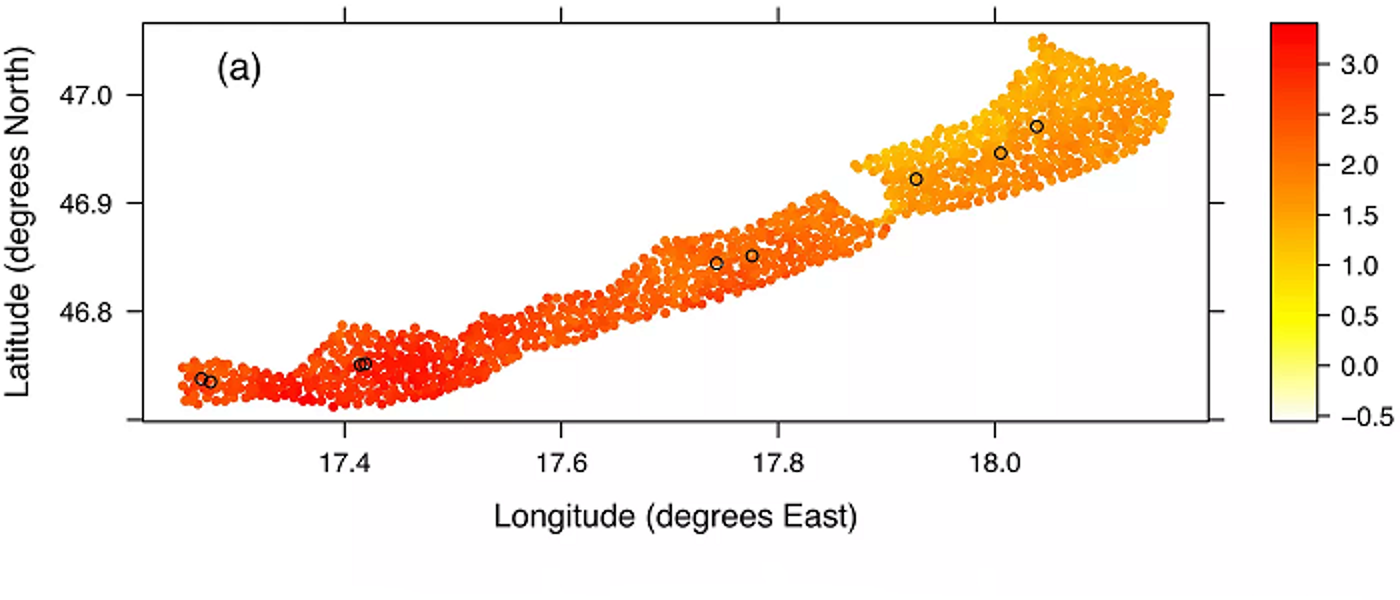Social & urban studies
Our research spans statistical applications in a multitude of aspects of social, economic and physical change in cities and communities.
Staff
Postgraduate research students
Refine By
-
{{student.surname}} {{student.forename}}
{{student.surname}} {{student.forename}}
({{student.subject}})
{{student.title}}
Social and Urban Studies - Example Research Projects
Information about postgraduate research opportunities and how to apply can be found on the Postgraduate Research Study page. Below is a selection of projects that could be undertaken with our group.
Causal inference in noisy social networks (PhD)
Supervisors: Vanessa McNealis
Relevant research groups: Nonparametric and Semi-parametric Statistics, Biostatistics, Epidemiology and Health Applications, Social and Urban Studies
One core task of science is causal inference, yet distinguishing causality from spurious associations in observational data can be challenging. Statistical causal inference provides a framework to define causal effects, specify assumptions for identifying causal effects, and assess sensitivity of causal estimators to these assumptions.
Recent interest has focused on causal inference under interference (or spillover), where one individual’s treatment affects the outcomes of others. Social network data are particularly valuable for this purpose, as they offer information about connections between individuals, revealing potential pathways for interference. For instance, in the National Longitudinal Study of Adolescent Health (Add Health), peer influences among adolescents provide an ideal case for studying spillover, especially as they relate to behavioural and academic outcomes. However, one challenge for Add Health is the very high level of missing edge variable data and censoring present, posing challenges since many methods for evaluating spillover effects assume fully observed networks.
This PhD will develop statistical methods for causal inference under network interference with noise, considering the following issues/approaches:
- Bias characterization in the presence of missing or uncertain edge information
- Semi-parametric inference
- Propensity score methods
- Multiple imputation for network data
A good knowledge of methods for survey sampling and regression is essential, familiarity with causal inference, statistical methods for coarse data, and semi-parametric inference would be an advantage.
Seminars
Regular seminars relevant to the group are held as part of the Statistics seminar series. The seminars cover various aspects across the AI3 initiative and usually span multiple groups. You can find more information on the Statistics seminar series page, where you can also subscribe to the seminar series calendar.
Research within the Social and Urban Studies group spans many aspects of social, economic and physical change in cities and communities, including, for example, governance, health, housing, social and health inequalities, planning, and transport. Researchers' particular interests include disease mapping, social network analysis, spatial areal boundary detection, forensic classification and evidence evaluation, modelling linguistic changes over time, and household air pollution assessment, among others.






